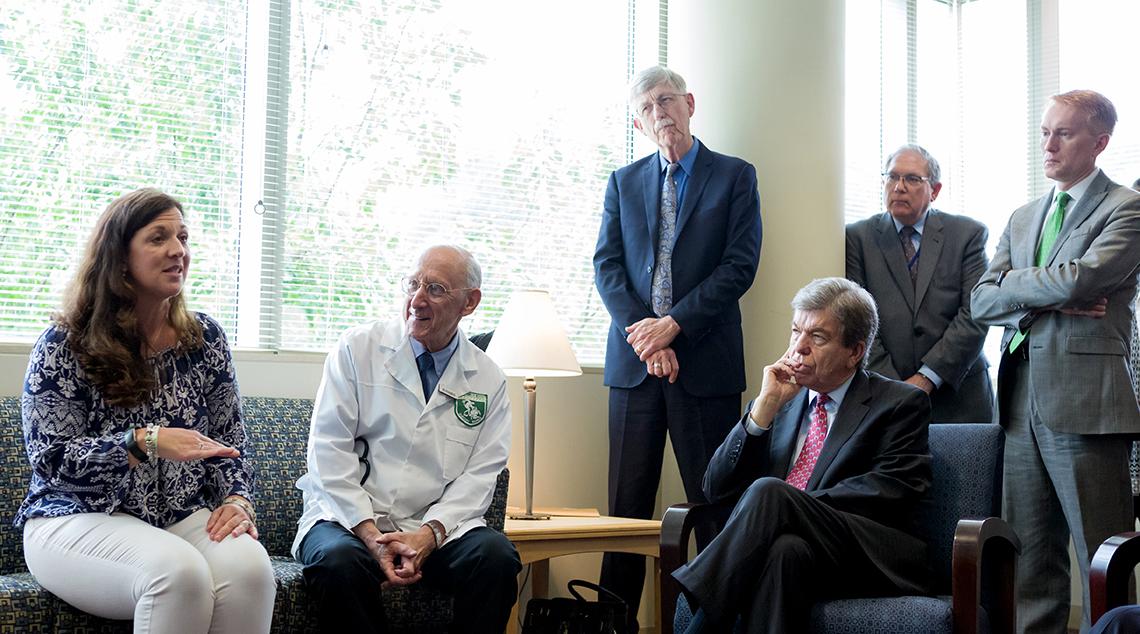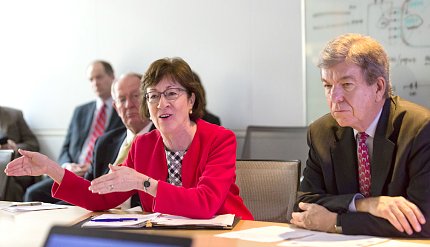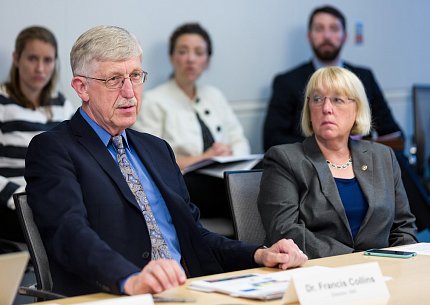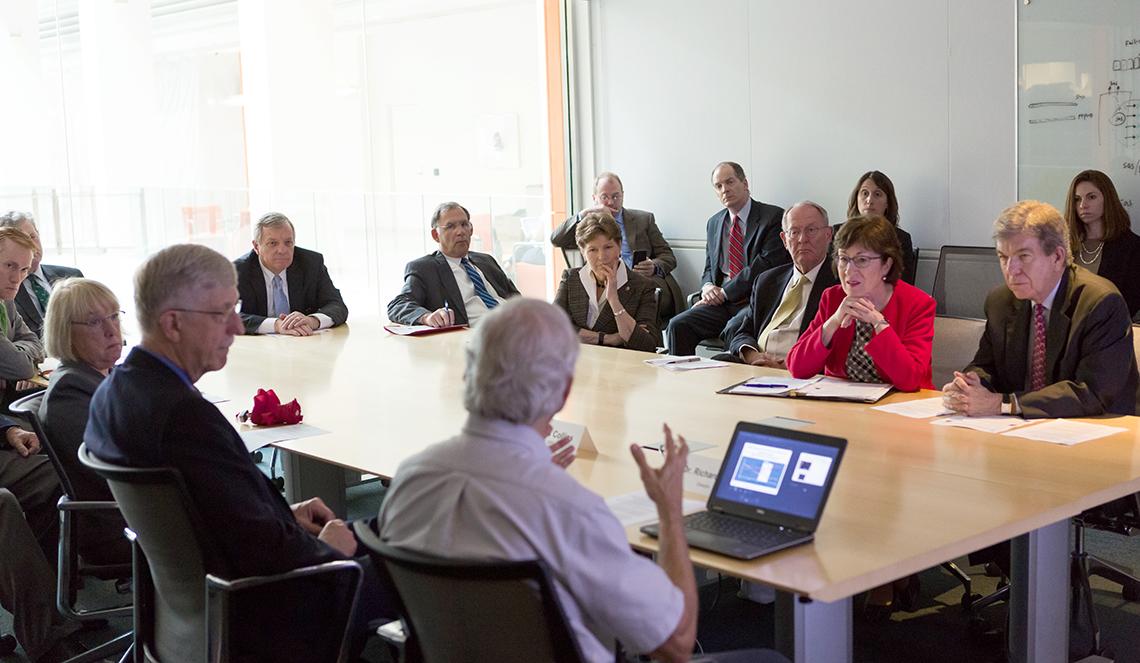Largest Ever U.S. Senate Delegation Visits NIH

Photo: Daniel Soñé
U.S. Sen. Roy Blunt (R-MO), chair of the Labor, HHS, Education and related agencies appropriations subcommittee, led a visit by 8 other appropriations committee members and staff to NIH on the afternoon of June 5.

Photo: Daniel Soñé
In addition to Blunt were subcommittee members Sen. Lamar Alexander (R-TN), Sen. James Lankford (R-OK), Sen. John Kennedy (R-LA), ranking members Sen. Patty Murray (D-WA), Sen. Richard Durbin (D-IL) and Sen. Jeanne Shaheen (D-NH) and members of the full committee Sen. Susan Collins (R-ME) and Sen. John Boozman (R-AR). It was the largest group from the upper legislative body to visit NIH at one time.
NIH director Dr. Francis Collins welcomed the delegation at the Porter Neuroscience Research Center, where he briefly described NIH’s BRAIN Initiative. In addition, NIA director Dr. Richard Hodes talked to the group about Alzheimer’s disease research.
Next, they traveled to the NIAID Vaccine Research Center, where NIAID director Dr. Anthony Fauci and VRC director Dr. John Mascola provided an overview of the facility and its role in the discovery of new vaccines for emerging and re-emerging diseases, including HIV/AIDS, influenza, Ebola and Zika.

Photo: Daniel Soñé
Group members heard how structure-based design is being used to develop universal influenza vaccine candidates as well as a vaccine for respiratory syncytial virus, a respiratory infection that can cause severe illness in infants and the elderly.
Afterwards, the delegation set off for the Clinical Center, where they were greeted by CC CEO Dr. James Gilman and NCI acting director Dr. Doug Lowy, en route to a briefing on NCI’s immunotherapy research.
Dr. Steven Rosenberg, chief of the Surgery Branch in NCI’s Center for Cancer Research, has pioneered development of effective immunotherapies and gene therapies for patients with advanced cancers. His studies of the adoptive transfer of genetically modified lymphocytes have resulted in regression of metastatic cancer in patients with melanoma, sarcomas and lymphomas. He talked about leading ongoing studies to replicate the success for other cancer types and discussed recently published results of a regression in metastatic bile duct cancer.

Photo: Daniel Soñé
Rosenberg described how immunotherapies for the treatment of cancer patients work and shared a patient’s story.
The group met briefly with Melinda Bachini, a 48-year-old paramedic and a mother of six from Billings, Mont., who was diagnosed with widespread bile duct cancer and had progressed through all available treatments before coming to NCI. She was treated with cell transfer therapy in October 2013 and had a dramatic cancer regression, which continues today.
Finally, the delegation visited with NIMH director Dr. Joshua Gordon, who provided an overview of his institute’s research, and Dr. Carlos Zarate, chief of NIMH’s Experimental Therapeutics & Pathophysiology Branch and section on the neurobiology and treatment of mood disorders.

Photo: Daniel Soñé
Zarate talked about developing novel medications for treatment-resistant depression and bipolar disorder. He, too, presented a patient whose story profoundly moved the senators.
